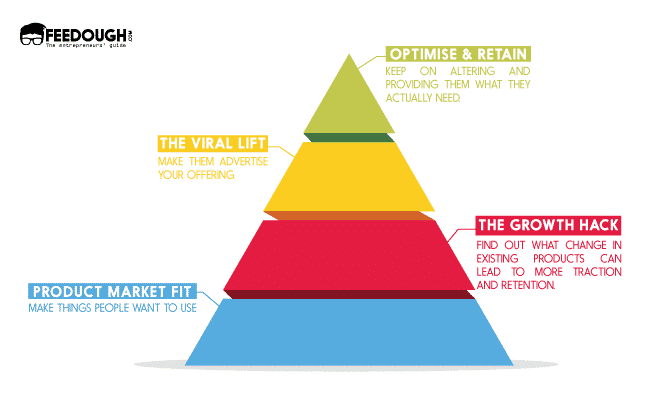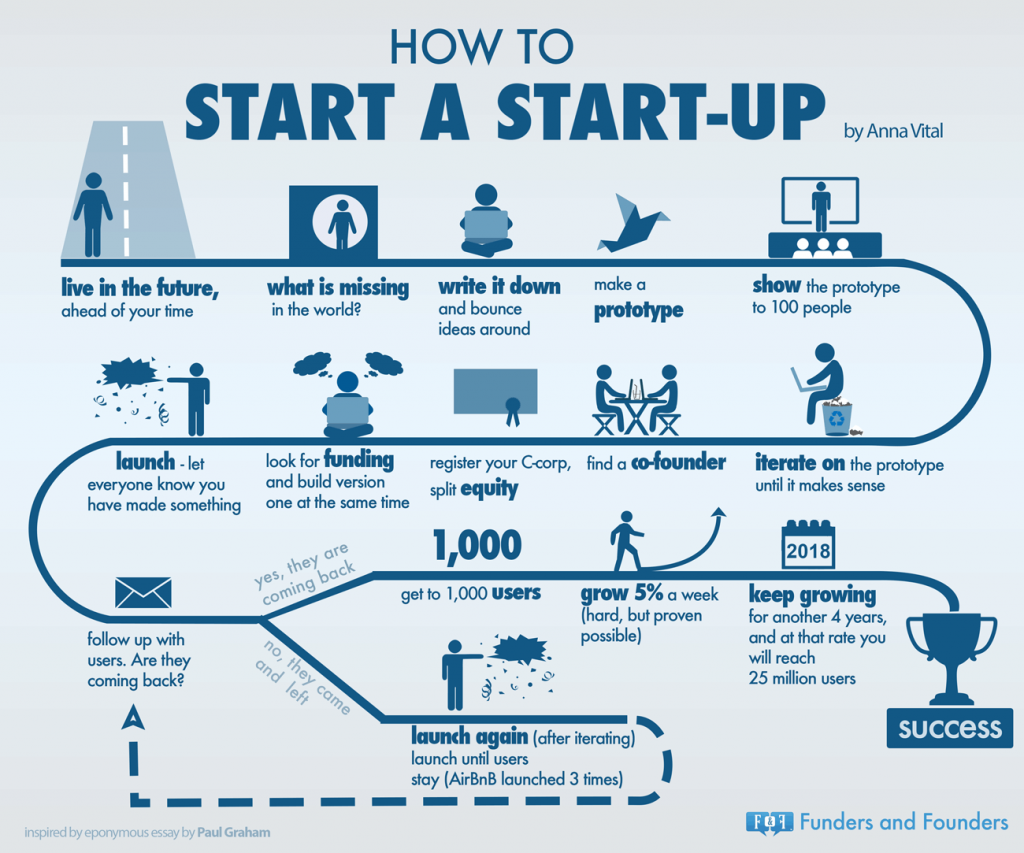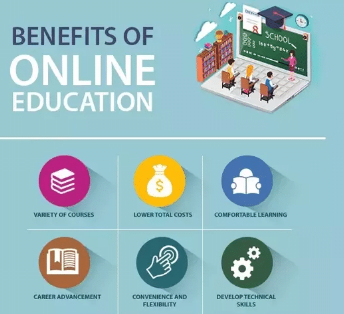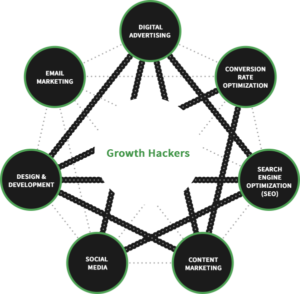Would you rather learn outdated material or be taught growth hacking techniques and funnels in schools And why do you need to learn growth hacking anyway.
Growth hacking is an important part of marketing in 2021 and beyond
Growth hacking is a relatively new, yet highly demanded form of marketing that has its focus on the fast acquisition and retention of customers on a small budget or even no budget at all.
It is about knowing how to get the highest results with the least amount of capital required.
Recently it has become a startup’s bread-and-butter when it comes to building initial interest and designing its product or service, and especially tech companies love it.
Growth hacking is a hot topic to discuss for anyone in marketing, and smart growth hackers are in demand in the job market.
It can be seen that the interest in growth hacking is increasing over time, and the term itself is becoming more and more popular on the Internet. Yet very few people know what it exactly entails.
Let’s try to understand why it is like that!
What is growth hacking?
The concept of growth hacking and growth hacking funnel is simply achieving more while doing less.
The key is creativity. A good growth hacker will find out what your consumers want and optimize your product or service for the product-market fit.
If you’re involved in a startup, you need to know about it.
Manual marketing efforts are replaced by tools like targeted advertising and search engine optimization tools to grow your business.
In the end, it’s all about increasing the overall opportunities by mixing the conventional, traditional marketing approaches with the new, digital tools and growth hacking techniques.
‘Breakdown of Growth Hacking Funnel’ – Neil Patel
Why is it so important to learn growth hacking cencept and funnel?
Learning and performing growth hacking techniques and funnel will give you an advantage over traditional marketers and help you to scale your company with fewer resources and faster.
Good and experienced growth hackers are therefore in high demand, but right now there aren’t enough to go around.
Why? Because very few schools are teaching it! Hardly any colleges or universities are currently teaching this field to their students.
Growth hacking can be quite complicated and can come in many different forms, depending on the type of company and product or service.
So, let’s explore the 8 key reasons why it has stayed outside of the classroom doors so far.
Table of Contents
1. Growth hacker isn’t traditional marketer.
Many schools and universities focus on giving students frameworks and methods that have proven their success in the past, yet these were working 20 years ago and are based on traditional marketing methods.
This is because traditional marketing easily fits into well-known frameworks and theories. Growth hacking on the other hand is dynamic, and to learn it requires adjustments and experimentation along the way.
The fundamental concept behind growth hacking is building marketing into the product or service by its design and adjusting your sales funnel accordingly.
The attractiveness of the product or service should speak for itself, and it should be advertised to your target audience.
To pull this off, a growth hacker must first achieve a good product-market-fit, meaning the product or service is exactly what the consumers in the target market are looking for.
This is done by releasing the first variation onto the market, taking feedback from customers on what was good and what wasn’t, and improve; then rinse and repeat.

Growth hacking differs from traditional marketing not only in method but also in the end goal.
Among traditional marketing, expectations can be: getting new customers, building the company’s pedigree, and making industry connections. On the other hand, the main aim of growth hacking is simply the growth of the startup.
The growth of a startup is done not just through advertisements, but also through the optimization of the product or service, and by paying attention to consumers’ demands.
One way to tell you’re doing it right as a startup is: you go viral on the Internet.
From here on it’s time for the next stage, which is optimizing the product or service based on consumer feedback; re-releasing it to the market, and letting consumers try it again. Listen to the users’ feedback and build off of it.
All in all, growth hacking techniques have a more holistic process compared to traditional marketing. It has a different end goal. Besides, in good growth hacking, everyone in the business is involved, not only the marketers
2. School aren’t teaching how to build a startups.
Universities can teach you much about the business world, but they won’t teach you how to build your own company.
Learning how to build your startup comes through the experience of actually doing it. No current classes can prepare you for the challenges you’ll face along the way.
Of course, you do need to research what it actually takes to build a company from an administrative perspective, on which schools can definitely teach you a lot.
However, growing startups is a much different game than the traditional way of starting a business.
Quite commonly students in schools will get cases on large corporations that have unlimited marketing budgets, while startups commonly are bootstrapped and require a growth hacker mindset to drive them towards success.
Just an example: in age as interconnected as today, there’s no way around the use of digital tools.
The spendings on digital marketing have surpassed that of traditional marketing in many countries, and it’s expected this difference will only increase more in the future.
So with traditional marketing techniques, you simply won’t be able to reach your target audience. For startups, there is a need to learn about digital marketing and growth hacking techniques. These skills you will acquire by practice.

3. The concept of growth hacking and growth hacking funnel is too new.
Sean Ellis, an entrepreneur known for Dropbox and LogMeIn, coined the term ‘growth hacking’ in 2010.
Almost a decade later it’s widely used in startups.
But the people who first started using it are still doing so. If schools were to offer growth hacking classes, who would be teaching?
Who has enough experience that isn’t still working in startups?
Also, there are no teacher courses for growth hacking, nor even one particular way of doing it. Every time is different.
Growth hacker must be able to adapt and improvise.
There’s no specific framework that always works, rather it’s about developing your own framework for a specific situation and market!
Therefore there also can’t be one particular way to teach it to either students and educators.
The growth hacking techniques that worked and brought success to one company, may not work for another. This is because different markets respond in different ways.
Thus, being a more modern form of marketing, growth hacking makes use of modern tools and has modern goals.

4. Most schools prefer traditional education.
Growth hacking is new and bold, it uses techniques only available in the digital age and it has its fundamentals rooted in a much more modern ideology than traditional marketing and business expansion do.
Offering growth hacking courses would require schools to make drastic changes to the whole course set-up and teaching styles.
Yet it is commonly known that educational change doesn’t happen often, and if it does, it will happen slowly.
Getting schools to switch from solely providing traditional marketing education also requires a high demand for growth hacking courses, which may not be there (yet).
Thus given the great challenges and uncertainties, many schools have a hesitant attitude towards adapting their courses.

5. Online courses often provide more benefits in teaching entrepreneurs.

Since any entrepreneur trying to start up a business will have a full-time job on it, it will be difficult to combine it with traditional classes.
Unless there is the option to follow classes in your own time and pace, it will be difficult to take the time to follow courses on-site.
Since online schools can provide the possibility to schedule your own classes, choose your own teachers, and practice in your own free time, they often are the preferred choice for an entrepreneur or a growth hacker.
Most likely the online courses will also turn out to be cheaper than the ones at physical schools since there are lesser costs for the institution to make.
Thus, given the benefits online teaching has to offer, many schools may be hesitant to open an on-site course.
6. The same can be said for online videos.
Who hasn’t used a video when they were uncertain about something or wanted to learn more about a certain topic…
There is an abundance of knowledge freely accessible on platforms such as YouTube and Vimeo that can help you become a growth hacker.
A great example is Neil Patel, an English entrepreneur who covers many topics related to growth hacking in his YouTube videos.
The advantages of these platforms are of course the infinite amount of knowledge available, the knowledge can be accessed for free, and the videos can be accessed whenever and wherever you want to!
So why would schools even want to compete with these free videos?

7. Growth hacking is not necessarily a standalone job.
Or at the very least, growth hacking won’t be the growth hacker’s only job.
While it may be one person’s job to be the company’s “growth hacker”, the whole team has to be involved.
Growth hackers are product designers, CEOs, sales assistants, and everything in between. Growth hacking has to be involved in all aspects of the business, from design and development to marketing and management.

The idea of growth hacking is achieving a universal mindset for the whole business, not just for one person or group.
One of the biggest focuses in growth hacking is letting the product or service advertise itself.
Designers have to see a flaw in the relevant market and come up with a product or service that can fill that hole.
This means that the people who are in charge of growth hacking also need to be involved in the development of the product or service, as they’re the ones who know what is needed to appeal to the market.
8. Experience is the best teacher.
This is by far the most important point on this list.
It may sound cliché, but in this case, it really applies; experience will teach you growth hacking better than a course.
You should get a decent understanding of the concept first. But after that initial research, the best way to learn it is to do it in practice.
Neil Patel, covers this in his YouTube video on growth hacking, saying “constantly learn, you don’t know everything that you should’’.
All the world’s best growth hackers have gotten there by doing it, over and over, and likely within multiple companies.
This taught them where and when certain strategies will or won’t work. And – most essentially – it learned them how to create an excellent product-market fit, which is the key to successful growth hacking.
Conclusion
In essence, physical schools may not be teaching growth hacking yet, and that’s a shame. But that doesn’t mean you can’t learn it.
The proof that you don’t need to learn it in school is the number of talented growth hackers out there who learned it through their experiences.
It’s all about thinking and using your intuition to figure out what your product or service needs to be, who will want to buy it, and how you’re going to get them to do just that.
And there can be no doubt, good growth hacking is essential to startups in this day and age.
It is the most effective and cost-efficient way to get your product or service out there. Getting your whole team on board and achieving a good product-market fit are essentials to growth hacking.
If you can pull it off, it will help grow your start-up like nothing else. And even better, it’ll do it within your budget!
Since a base of basic knowledge has proven to be valuable, it is wise to look into online courses on digital marketing and growth hacking before starting up a business from scratch.
Online courses may prevent many of the commonly made mistakes, and can thereby save you a lot of money and time else wasted!
So what are you waiting for? If you have a business you want to grow, do your research, learn from others’ success stories and start growth hacking now!





2021 has taught us that you can learn from anywhere. Really hope people start to consider that experience is far more important than a degree.
We are making interesting and entertaining videos for kids. I’ve always thought growth-hacking should be taught at an earlier age.